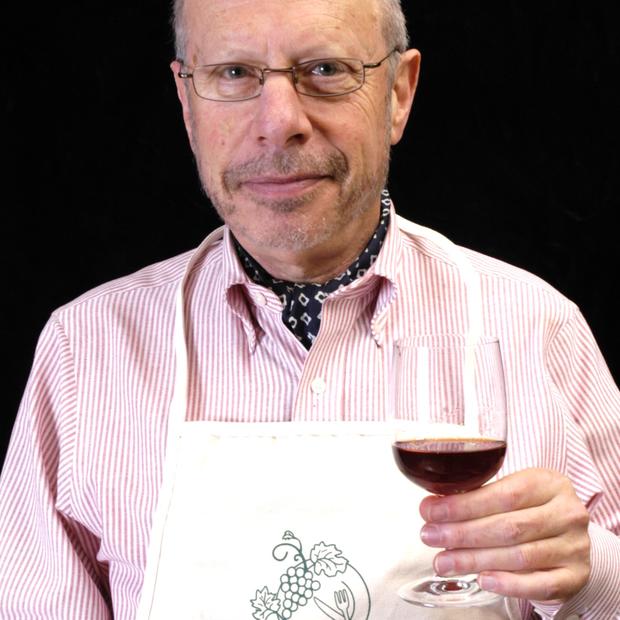Giuseppe Verdi's remarkable final opera, Falstaff, composed when he was 80, has no great melodic lines, no triumphal marches, no vengeful heroes or consumptive heroines. At its center, there is only a drunken old man who imagines himself a seducer. Not the greatest material — but this is masterful Verdi, and Falstaff is one of Shakespeare's greatest creations.
Falstaff's lack of self-awareness permeates the opera and gives it broad brushes of comedy. Handsome once, he has grown grotesque and fat, yet not without wit ("If Falstaff were thin, no one would love him"). He behaves like a boor. is oblivious to his own hypocrisy, and lectures his servants about "honor."
The opera is an amazing musical leap forward for the composer. It's Verdi's only comic opera, and a daring farewell to his art that finds the composer venturing into very new musical territory. It's based on Shakespeare's memorable character (mostly from The Merry Wives of Windsor, with bits of Falstaff's background adapted from the Henry plays), and it uses sprightly language and brilliant orchestration to tell the story or Falstaff's comeuppance.
In the absence of individual arias or hummable tunes, the instruments (horns, piccolos) are themselves virtual characters, commenting on the onstage action or the characters' emotions. Indeed, under Riccardo Frizza's deft baton, the orchestra sounds like they're playing music from another era entirely (back to Bach's fugues and Mozart's quartets, forward to the champagne waltzes of Strauss), rather than the grand and emotive melodies of Verdi's earlier, more famous operas. And that's as it should be: The opera is playful, not solemn, the cheerful farewell of Italy's greatest 19th century composer.
The current Seattle Opera production is homegrown. Created by Peter Kazaras three years ago for the company's Young Artists program, and admiringly reviewed for Crosscut by Thomas May, the production migrated to Los Angeles and Cleveland before returning to Seattle, where the set needed only a slight stretch to span the proscenium at McCaw Hall.
The unusual set is a stylized version of the Globe in London, with a raked stage bordered by bleachers, where the singers sometimes retreat when they're not performing (and sometimes get in the way of the action). One nice touch: Midway through the third act, a cantilevered cloud of chairs descends to create a stylized tree, and Falstaff puts on a pair of horns to navigate the woods, turning him into a cuckhold even as he tries to seduce a married Alice Ford. As always Jonathan Dean's supratitles capture the essence of the Italian libretto, often returning to Shakespeare's original language for the perfect couplet.
Kazaras directed Seattle Opera's Marriage of Figaro last year with several comic scenes of letter-reading and singing at cross-purposes. This time, there's so much going on, musically and dramatically, that the opera sometimes seems like a TV sitcom ("Fatman Knows Best" meets "Desperate Windsor-Wives" meets "Laugh-In"). Kazaras, a former tenor who also teaches opera at UCLA, is right at home directing comedy, but what he's done with this Falstaff transcends farce. One wonders how he'll handle Wagner's Tristan und Isolde next season.
Peter Rose, whose most recent appearance at McCaw was as a randy, out-of-voice Baron Ochs in Rosenkavalier, triumphs in the title role, a sympathetic character despite his considerable flaws. Surely he's not deserving of "death by a volley of turnips." Stephanie Blythe, costumed as a sexy wench, portrays the gossipy Dame Quickly with infectious good humor. It's a role she first played at Covent Garden decades ago, and where she met her husband, the actor David Smith-Larsen, who had the role of Innkeeper, then and now. Whenever she's singing, she commands the stage.
The stage has no curtain. The performers arrive in street clothes and change into costume in full view of the audience, as if at a opera workshop or rehearsal. General Director Speight Jenkins strolls across the stage to say hello, Doug Jones is on a cellphone, Blythe waves to her adoring fans, Rose puts on a preposterous fat suit (shades of Pagliacci's "Vesti la giuba"). And when all is said and sung Falstaff has been properly humiliated and chastened: "I do begin to perceive that I am made an ass." He then leads them all in a cheerful chorus, "Tutti gabbati," Hah-hah, it was all a put-on! He who laughs last, laughs best.
This fine production of a Verdi masterpiece is the perfect opera for self-doubting Seattle in these angst-ridden times. It's full of linguistic curlicues and wink-and-nod references making clear that we're all in on the joke.
Seattle Opera presents Falstaff at McCaw Hall through March 13, For tickets ($25-$168), call 206-623-0800 or go online.


